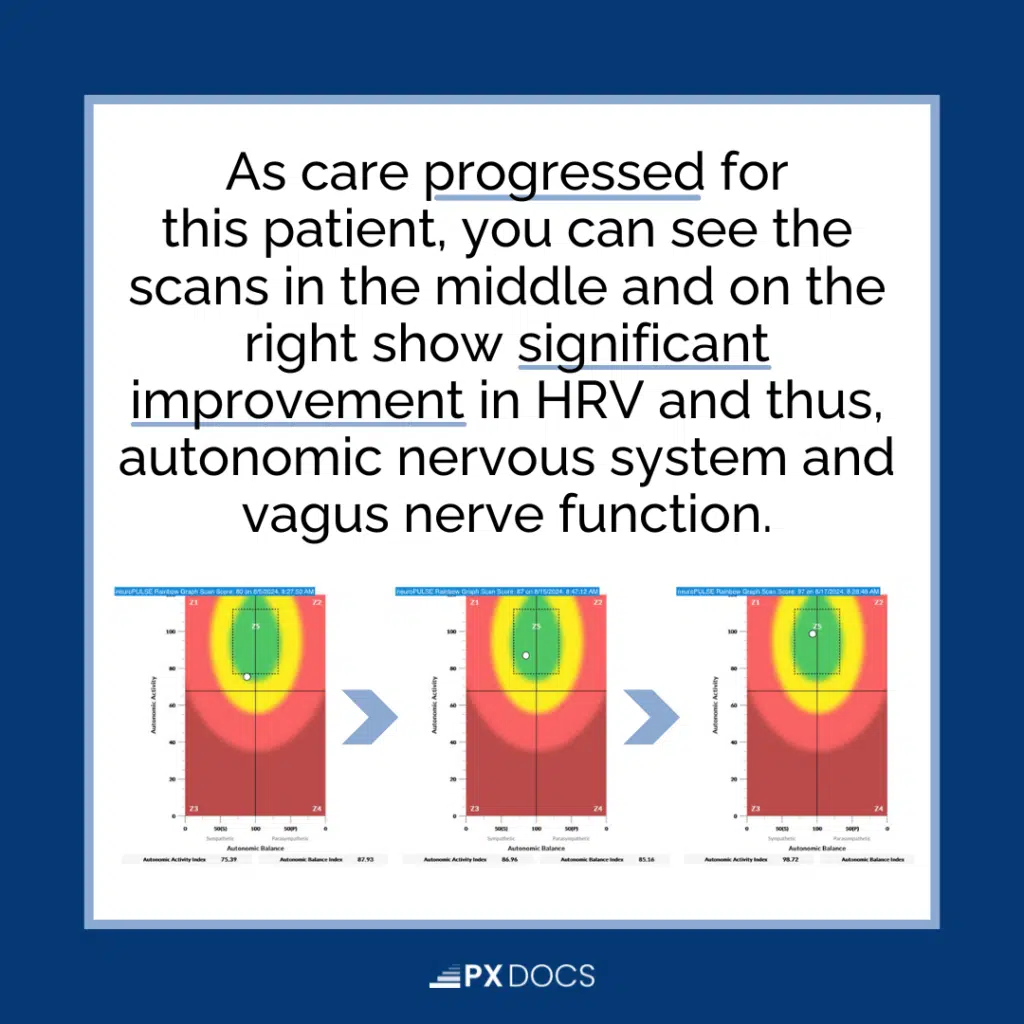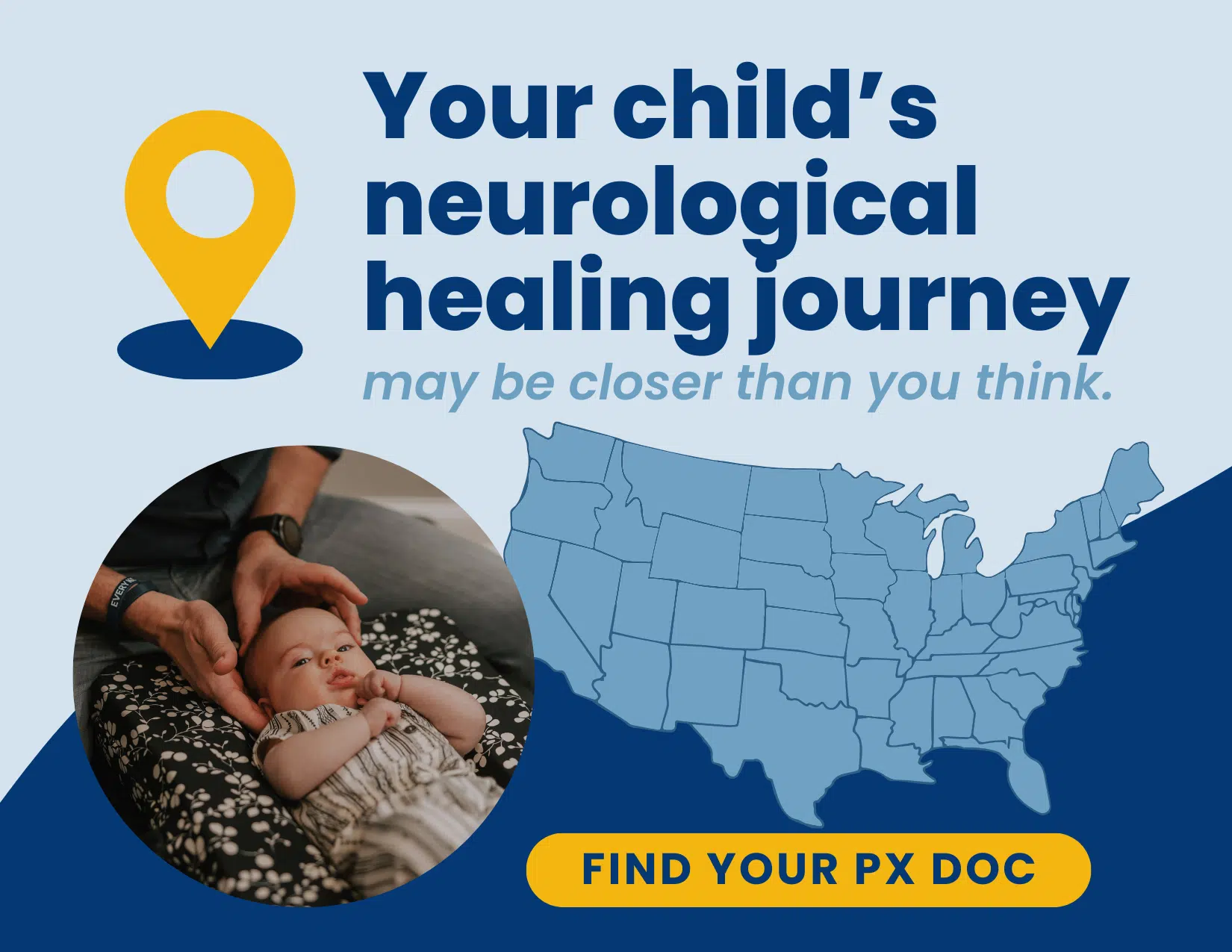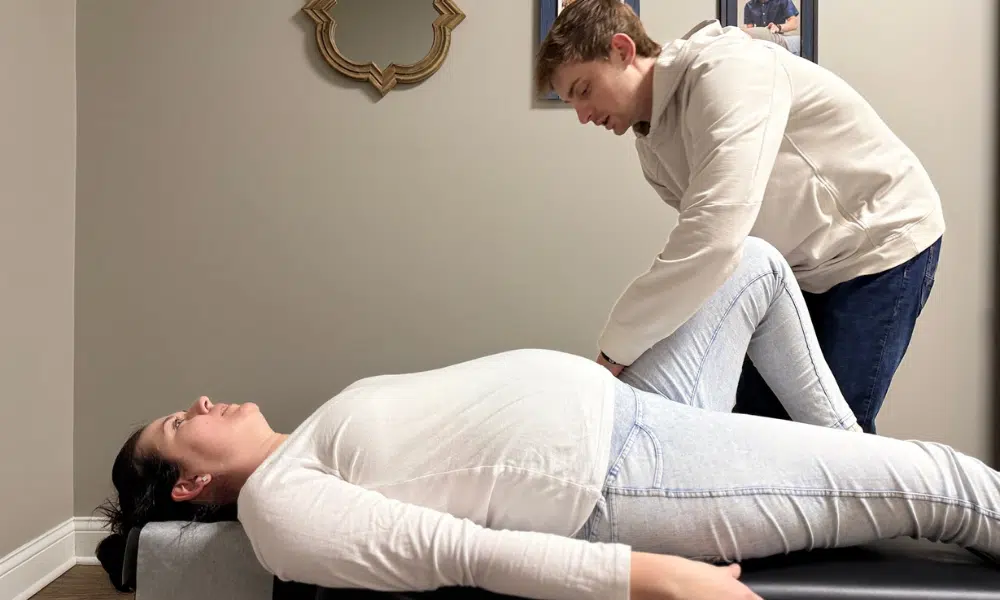Is your child or teen struggling with dizziness, fatigue, and a rapid heartbeat upon standing? Have you been searching for answers, wondering if their symptoms could be related to a condition called POTS? You’re not alone.
Postural Orthostatic Tachycardia Syndrome (POTS) is a growing concern for many parents, with an estimated 1-3 million people in the United States alone experiencing this often misunderstood condition.
As you navigate the complexities of your child’s health, one question that may have crossed your mind is, “Is POTS genetic?” While research has explored potential genetic components, the answer is not as straightforward as you might think.
In this article, we’ll dive deep into the root causes of POTS, exploring the interplay between genetics, environmental factors, and the critical role of the nervous system in regulating our body’s functions. By understanding the PX Docs perspective on POTS, you’ll discover how Neurologically-Focused Chiropractic Care may hold the key to unlocking your child’s health and restoring their quality of life.
What is POTS?
Postural Orthostatic Tachycardia Syndrome, also known as POTS Syndrome, is a disorder of the autonomic nervous system, which controls involuntary functions like heart rate, blood pressure, and digestion. POTS is characterized by a rapid increase in heart rate when a person moves from a lying or seated position to standing. This sudden change in position can cause various symptoms that can significantly impact daily life.
Common symptoms of POTS include:
- Dizziness or lightheadedness upon standing
- Fatigue and weakness
- Rapid heartbeat (tachycardia)
- Shakiness or tremors
- Headaches
- Difficulty concentrating or “brain fog”
- Nausea and digestive issues
- Chest pain or palpitations
For many individuals with POTS, these symptoms can be debilitating, making it challenging to perform daily tasks, attend school, or maintain employment. The constant struggle to manage symptoms and the lack of understanding from others can also take a toll on mental health, leading to anxiety, depression, and social isolation.
As a parent, watching your child suffer from POTS can be heartbreaking. You may feel helpless, frustrated, and desperate for answers. Understanding the root causes of POTS and exploring effective treatment options, such as those offered by PX Docs, can provide hope and a path forward for your child and family.
Is POTS Genetic? Exploring Potential Causes of POTS
As researchers work to unravel the mysteries of POTS, genetics has emerged as a potential piece of the puzzle. Experts have found that POTS can run in families, suggesting that there may be an inherited component to the condition. However, the role of genetics in POTS is complex and not yet fully understood.
One gene implicated in POTS is the norepinephrine transporter (NET) gene. This gene codes for a protein that helps regulate the levels of norepinephrine, a neurotransmitter involved in controlling heart rate and blood pressure. Some studies have found that mutations in the NET gene may be more common in individuals with POTS, but more research is needed to confirm this link.
Other genes that have been investigated for their potential role in POTS include:
- The alpha-1 adrenergic receptor gene
- The beta-1 adrenergic receptor gene
- The angiotensin-converting enzyme (ACE) gene
While these genetic factors may contribute to the development of POTS in some individuals, it’s important to recognize that genetics alone do not fully explain the condition. Many people with POTS do not have a family history of the disorder, and not everyone with a genetic predisposition will go on to develop POTS.
Moreover, we now know our genetics can change over the course of a lifetime in terms of how genes are expressed. Meaning, genetic expression may be far more important to the development of chronic health challenges like POTS than genetic predisposition.
Other Factors Contributing to POTS
While genetics may play a role in the development of POTS, it’s important to recognize that other factors can also contribute to the onset and severity of symptoms. Environmental factors, such as viral infections, traumatic events, and exposure to toxins, have been linked to the development of POTS in some individuals. These triggers can cause damage to the nervous system, leading to dysregulation of heart rate and blood pressure.
Lifestyle factors, such as diet, exercise, and stress management, can also impact the severity of POTS symptoms. Consuming adequate fluids and electrolytes, engaging in regular physical activity, and practicing stress-reduction techniques may help improve symptoms and overall quality of life for those with POTS.
“The Perfect Storm” concept, as described by PX Docs, suggests that POTS may develop as a result of a combination of factors, including genetic predisposition, environmental triggers, and lifestyle influences. This multifaceted approach to understanding POTS highlights the need for a comprehensive, individualized treatment plan that addresses the unique needs of each patient.
The PX Docs Perspective on Dysautonomia and POTS
At PX Docs, we view POTS as a manifestation of underlying neurological dysfunction, particularly in the autonomic nervous system. Nervous system dysregulation, dysautonomia, subluxation, and poor posture can all contribute to POTS by affecting the autonomic nervous system.
Dysregulation of the nervous system impairs its ability to properly balance the “fight or flight” (sympathetic) and “rest and digest” (parasympathetic) responses. Subluxations—interference in the spine that disrupts nervous system function—can further dysregulate autonomic function. Poor posture, often due to fatigue or subluxation, adds more stress, exacerbating dysautonomia symptoms and potentially contributing to the development or worsening of POTS.
The vagus nerve, which is a key component of the parasympathetic nervous system, plays a crucial role in regulating heart rate, blood pressure, digestion, and so much more. When the vagus nerve is not functioning optimally due to subluxation or other factors, it can lead to dysautonomia and POTS.
By addressing subluxation, dysautonomia, and vagus nerve dysfunction, we believe that it is possible to address the root cause of POTS and restore balance to the autonomic nervous system, instead of just focusing on its symptoms. This approach is at the core of our Neurologically-Focused Chiropractic Care model, which can greatly improve the quality of life for patients struggling with nervous system dysregulation and subluxation
Neurologically-Focused Chiropractic Care for POTS
At PX Docs, we offer a unique approach to caring for individuals with POTS through Neurologically-Focused Chiropractic Care. This approach focuses on identifying and addressing areas of neurological dysfunction, particularly in the spine and autonomic nervous system.
Using advanced diagnostic tools, such as INSiGHT Scans, our chiropractors can pinpoint specific areas of neurological interference that may be contributing to POTS symptoms. By providing targeted adjustments to these areas, we aim to restore proper neurological function and support the body’s natural healing processes.
Here is an example of a patient struggling with dysautonomia and vagus nerve dysfunction, as evidenced by the HRV Scan on the left (before starting care). A lowered HRV score is indicative of neurological dysfunction, imbalance, and exhaustion, which is core to the development of POTS.

Then as chiropractic care progressed for this patient, you can see the scans in the middle and on the right show significant improvement in HRV and thus, autonomic nervous system and vagus nerve function.
Take the Next Step: Restore Proper Neurological Communication and Health
While the question of whether POTS is genetic remains a topic of ongoing research, it’s clear that a multitude of factors can contribute to the development and severity of this condition. By understanding the complex interplay between genetics, environmental triggers, and lifestyle influences, we can develop a more comprehensive approach to caring for individuals with POTS.
At PX Docs, we believe that Neurologically-Focused Chiropractic Care offers a promising avenue for addressing the root causes of POTS and supporting the body’s natural healing processes. By focusing on the health and function of the nervous system, particularly the vagus nerve, we aim to help our patients improve their symptoms and quality of life.
If you or a loved one are struggling with POTS, we encourage you to explore the potential benefits of Neurologically-Focused Chiropractic Care. By working with a PX Docs practitioner near you, you can take a proactive step towards understanding your unique needs and developing a personalized care plan that supports your journey to optimal health and well-being.





